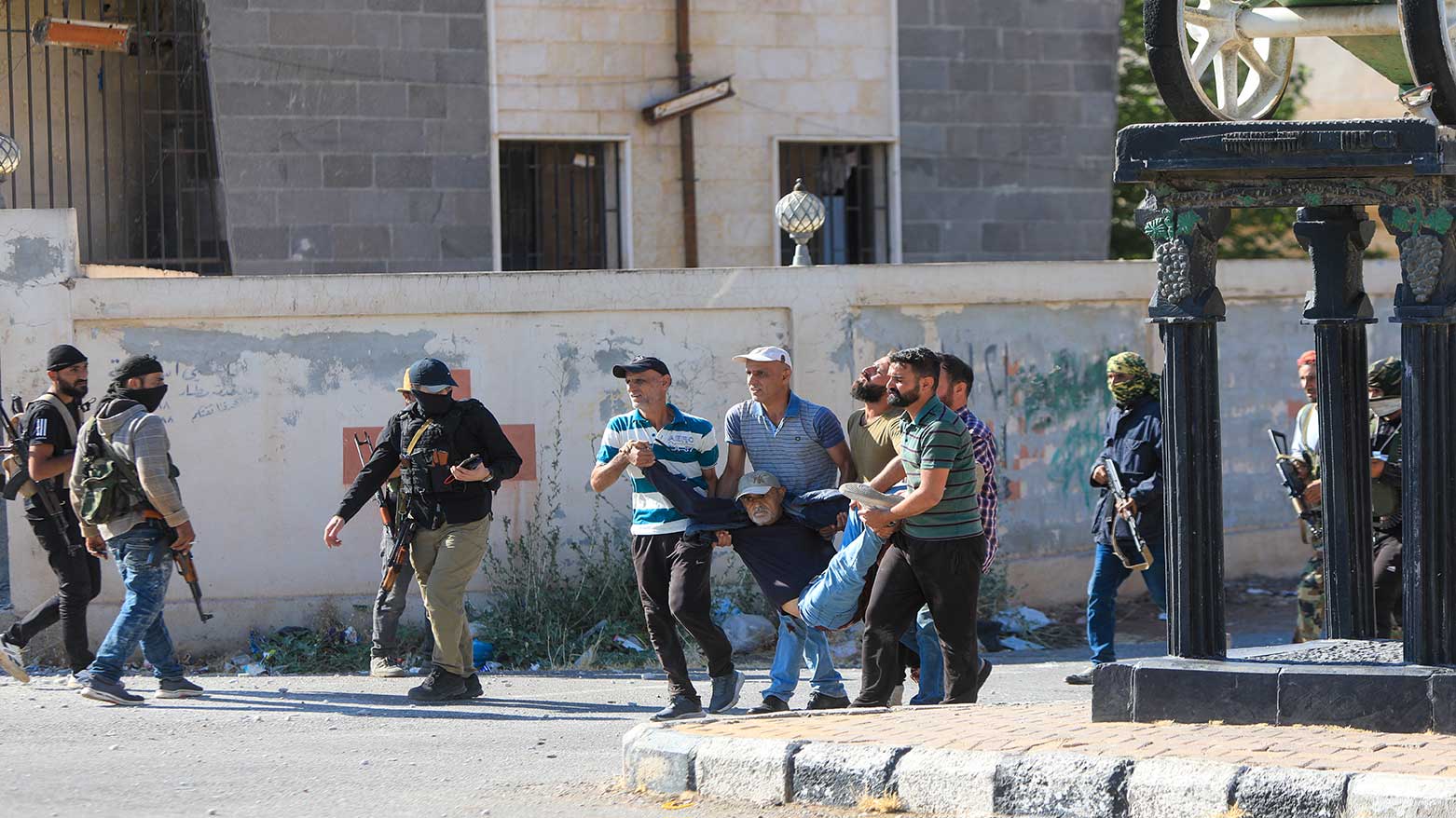Syrian Forces Advance on Sweida Amid Deadly Clashes Between Druze and Bedouin Fighters
The fighting claimed at least 99 lives, including 60 Druze—among them four civilians—18 Bedouin fighters, 14 members of Syria’s security forces, and seven unidentified individuals wearing military uniform, according to SOHR.

ERBIL (Kurdistan24) — Syrian government forces advanced toward the southern city of Sweida on Monday in an effort to suppress escalating violence between Druze fighters and Bedouin tribes, as talks aimed at brokering a truce reportedly began, according to AFP.
The fighting, which erupted on Sunday, has claimed at least 99 lives, the UK-based Syrian Observatory for Human Rights reported. The dead include 60 Druze—among them four civilians—18 Bedouin fighters, 14 members of Syria’s security forces, and seven unidentified individuals wearing military uniforms.
The conflict drew a response from Israel, which has previously warned it would act to protect the Druze minority. On Monday, the Israeli military said it struck “several tanks” in the Sweida region as a “clear warning” to the Syrian government. “We will not allow harm to be done to the Druze in Syria,” Israeli Defense Minister Israel Katz wrote on X.
An AFP correspondent observed Syrian forces seizing control of the Druze village of Al-Mazraa, where Bedouin fighters were also present. Ezzeddine al-Shamayer, a local commander, confirmed to AFP that forces “are heading toward Sweida” city. Syria’s interior ministry also stated that army and security forces “have moved closer to the centre” of the province.
Bassem Fakhr, spokesperson for the Men of Dignity movement—one of the largest Druze factions—said negotiations were ongoing between Druze notables and representatives of Syria’s general security and defense ministry to de-escalate the situation. Meanwhile, Druze religious authorities issued a call for a ceasefire Monday evening, reiterating that they were not opposed to the Syrian state.
However, Sheikh Hikmat al-Hijri, one of Sweida’s top three Druze spiritual leaders, voiced strong opposition to the deployment of Syrian general security forces in the province and called for "international protection."
Fear of Massacres
The deadly violence is a major challenge for Syria’s new interim leadership, headed by Ahmad al-Sharaa, whose Islamist-backed forces overthrew long-time President Bashar al-Assad in December following nearly 14 years of civil war.
Sweida, a stronghold of Syria’s estimated 700,000-strong Druze population, has remained relatively autonomous during much of the conflict. The Druze—adherents of a distinct monotheistic religion rooted in Shiite Islam—are concentrated primarily in Syria, Lebanon, and Israel.
In recent months, Druze factions had reached an agreement with Damascus to assume local security responsibilities following clashes with state forces in April and May. But tensions resurfaced when Bedouin gunmen reportedly kidnapped a Druze vegetable seller on the Damascus highway Sunday, prompting retaliatory abductions.
Though the hostages were eventually released, the violence escalated, with mortar fire striking villages and dozens wounded, according to local news outlet Suwayda 24. Streets in Sweida city were largely deserted on Monday, and an AFP photographer reported hearing distant gunfire during funerals.
“We lived in a state of extreme terror—the shells were falling randomly,” said 51-year-old resident Abu Taym. “Most shops are closed.” Another resident, Amal, 46, expressed fears of a repeat of the “coastal scenario”—a reference to the March massacres of more than 1,700 mostly Alawite civilians in northwest Syria.
“We are not against the state, but we are against surrendering our weapons without a state that treats everyone the same,” she added.
Sectarian and Institutional Tensions
Interior Minister Anas Khattab attributed the violence in part to the “lack of state, military, and security institutions” in Sweida. In an X post on Sunday, he warned that this power vacuum had fueled longstanding tensions between the Druze and Bedouin communities.
The Observatory noted that some Bedouin tribes, who are mostly Sunni Muslims, aligned with government forces during earlier clashes with Druze factions. These sectarian tensions have flared intermittently over the years, often over territorial and tribal disputes.
Syrian Defense Minister Murhaf Abu Qasra called on his troops via social media to “protect your fellow citizens” from “outlaw gangs” and “restore stability to Sweida.”
The violence comes at a precarious time for Syria’s transitional authorities, who have struggled to demonstrate an ability to maintain security and prevent the targeting of minority groups. A wave of attacks on Alawite and Druze communities, as well as a deadly church bombing in Damascus in June, have raised doubts about the government's stability and its capacity to protect its citizens.